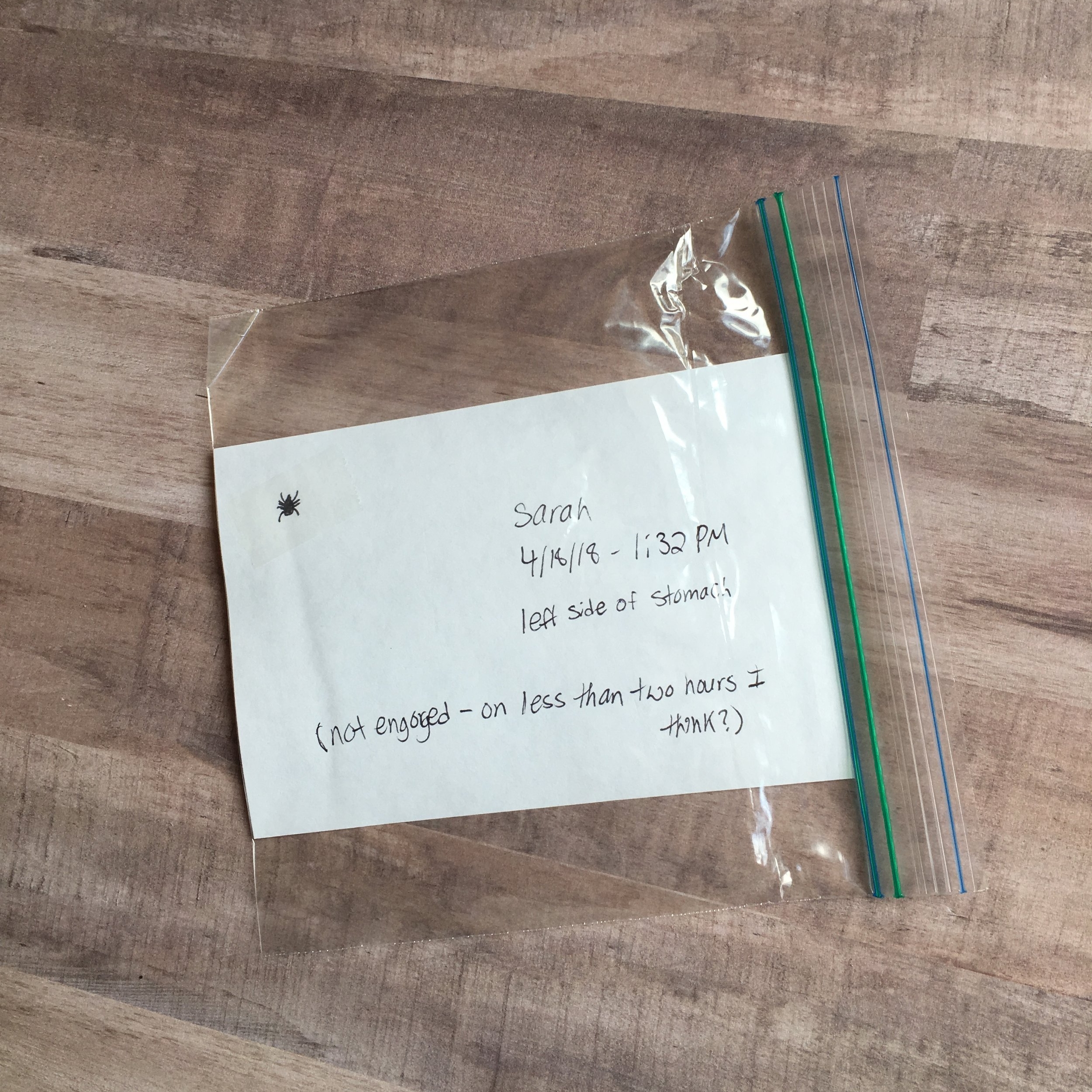Create a Tick Removal Kit to Help Protect Your Family
Living in the Northeast, ticks have just been awful the last few years and it seems as though you can't enjoy the outdoors anymore without finding one. It's so important to protect yourself and family from getting a tick in the first place (if you want to read more on my tips to keep ticks at bay, check out my previous post "Safeguarding Against TICKS"). But in the event you unfortunately get one on you, you need to be prepared so you can remove that awful thing ASAP. By having a Tick Kit handy, you'll be able to remove the tick quickly and safely and hopefully lessen your chances of catching a tick-borne illness.
| This post contains affiliate links and personal tips - Disclaimer: I am not a medical expert, always check with your doctor for advice |
I recommend putting together several tick removal kits and keeping them handy at all times - keep one at home, one in the car, and one in your hiking bag for outdoor trips or diaper bag for playground excursions. That way if you're out and about and find one on you or your family you can safely remove it and document it, ready for testing purposes.
What to Include in your TICK REMOVAL KIT:
- tick spoon
- alcohol wipes
- index cards
- tape
- pen or sharpie
- ziplock bags
If you unfortunately get a tick attached to you, safely remove it immediately to help reduce your exposure to tick borne illnesses. Use the alcohol wipes to cleanse the area where the tick was removed as well as wipe down the tick spoon after removal.
It's important to keep the tick itself - as well as note when and where it was located and any other information about the situation (if the tick was engorged, your best guess at how long it could have been attached, etc). Tape the tick to an index card and use your pen to record all of this information, then place in an empty ziplock bag - feel free to double bag it if you want. Then call your doctor right away for advice on any precautions you may need to take, or if he wants to order to get the tick tested.
Whether or not you get the tick tested (either by your doctor or privately), you can also report your tick bite to TickEncounters. TickEncounters is a program run by the University of Rhode Island, recording and monitoring trends and information regarding tick bites and your information helps aid in their research. They can also help advise you about how to get the tick tested for your peace of mind in the event your doctor's office doesn't do it.
Related posts:
DISCLAIMER: I am NOT an expert or medical professional. These are tips and information I've learned over the years living in a tick-prone area. Always check with your own doctor and local experts for the best prevention and treatment plans for yourself and your family. Discuss with your doctor ahead of time what to do in the event of a tick bite (and I hope you never need to use that information).
KEEP UP WITH BIRCH LANDING HOME
| Etsy | Facebook | Instagram | Pinterest | Bloglovin' | Hometalk |






